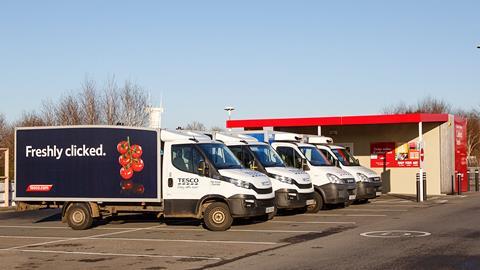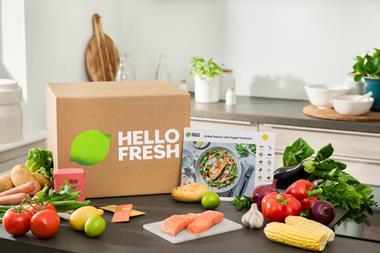If you thought Christmas shopping in stores was bad – try doing it online. In the early hours of Friday morning Tesco delivery pass holders logged onto Tesco.com to secure a slot for the week leading up to Christmas. They had done everything to give them an edge: their passes entitled them access to slots a week before non-pass holders, and they were primed at their computers well ahead of the 7am release.
Many were left disappointed. The website had “issues” with shoppers stuck in a virtual waiting room for hours. Once in, many hit site glitches and errors which meant all available slots were gone by the time they could shop. “Despite the queuing system, the website was still slow and unresponsive at times. I’m afraid the slots have now gone” Tesco tweeted one distraught customer.
Technical problems due to the sheer weight of website traffic are hugely frustrating for customers, but quickly forgiven if a hallowed Christmas slot can be secured eventually. Problem is, the supply of slots is struggling to keep up with demand. Online’s share of grocery sales has nearly doubled this year, according to Kantar – and could be even higher this festive period. Some 39% of shoppers are looking to buy their groceries online this Christmas, according to a YouGov survey of nearly 1,000 UK adults. Lockdown restrictions, or the expectation of them on the big day, could further amplify demand, says Julian Skelly, retail analyst at digital consultancy Publicis Sapient.
“With Covid restrictions, most of us will be staying at home and celebrating with our immediate families. This will lead to more households shopping for smaller baskets and this will definitely put a strain on delivery slots,” Skelly says.
Nor have fears of shortages completely gone away, despite rising consumer confidence, Skelly adds. “This is likely to lead to people panic buying earlier and for longer regardless of uncertainty over possible Christmas restrictions,” he says.
So what can supermarkets do?
Achieving the incredible increase in slot counts – added in their millions through the pandemic – has meant practically every efficiency from operations has already been squeezed. Moves like item count limitations, longer slot times and restrictions on bulky products can only do so much.
To manage demand Asda has brought forward the release of Christmas slots, which are already sold out in some areas. Ocado did too and they are now all sold out – “we simply don’t have enough slots for everyone this year” the retailer said. Rivals are sticking to usual schedules, for now.
Further gains “are limited at this point” says Skelly. “At this stage, they can only tweak processes and software,” he adds.
They can of course hire more hands to add still more slots. Waitrose last month announced it is recruiting close to 2,000 new drivers and pickers for the festive rush. All the majors are currently advertising for temporary customer fulfilment roles.
But even then “it is not easy to add a temporary capacity burst to home delivery – there are too many interconnected parts”, Skelly says. “Warehouses can scale up to a point but once saturated, there is no capacity left.” Delivery hours could be extended but few customers will be wanting to wait up so late.
“More realistically, supermarkets will need to throttle demand,” Skelly says. “They’ll need to send shoppers to other channels – there is a limit to how far home delivery can scale.”
The good news is the mults have been building up alternative channels through the year. They’ve rapidly rolled out click & collect options across their store estates this year, with some approaching total coverage. Several supermarkets have struck up partnerships with the likes of Deliveroo, Uber Eats and a slew of smaller players. And in-store shouldn’t be forgotten either, now supermarkets are one of few places non-essentials can be browsed in the aisles.
It will take some careful messaging to manoeuvre customers away from their first choice of channel. But doing so could avoid consumer resentment resulting from supermarkets spoiling the festive celebrations – a ghost of Christmas present that would haunt retailers for years.




















No comments yet